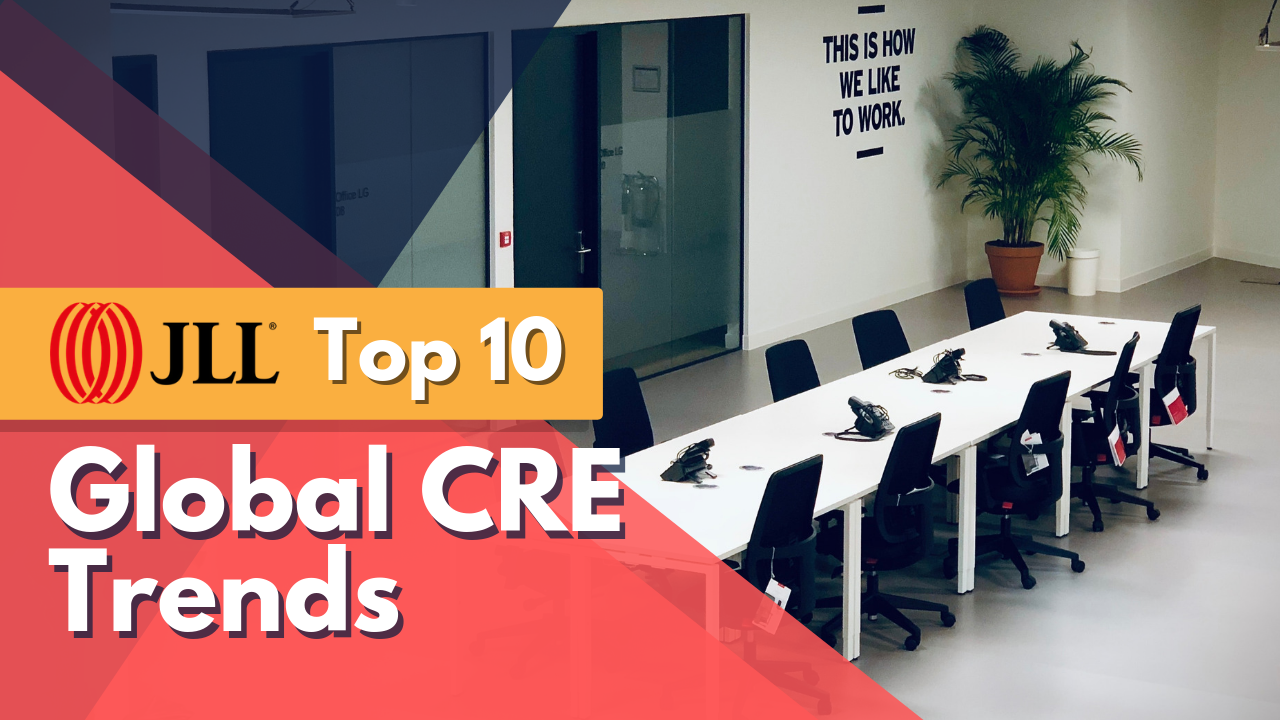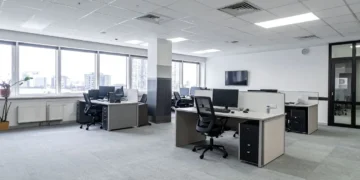JLL released the fourth edition of their Top 10 Global CRE Trends report.
Key trends include rising levels of investment in technology and the need for more inclusive workspaces.
Flexibility is a key priority, as more employees (51%) want companies to provide more flexible working options.
JLL has released the fourth edition of their Top 10 Global CRE Trends report and it makes for an insightful read. The data-driven research is designed to help businesses across all industries reshape their real estate strategy and overcome contemporary challenges posed by an increasingly turbulent economic landscape and ever-changing global business landscape.
The report provides a high-level overview of key trends, such as rising levels of investment in technology and the need for more inclusivity in workspaces – all of which are backed up with statistics sourced from JLL research and other authoritative bodies.
Let’s take a quick look at each of JLL’s top CRE 10 trends for this year.
1. Future fit enterprise
- “Future fit” enterprises use CRE to steer wider business goals and are characterised by their focus on collaboration, willingness to experiment with new technologies and use of outsourcing methods.
- Future fit businesses achieve an average profit growth of 31% over three years, compared with others who experience an average growth of 19%.
2. Digital imperative
- 34% of CRE leaders think technology will be the biggest investment priority over the next three years.
- “Workplace and employee experience apps” tops the investment list (30%), followed by smart technology / IoT solutions (22%).
3. Inclusive workplace
- Research shows that inclusive and diverse workplaces produce better business results, e.g. ethnically diverse companies are more likely to perform 35% better (Analytics HR, 2017).
- “Alternative work arrangements” are on the rise, with freelancers predicted to make up 33% of alternative labour in 2020.
4. Human performance
- 55% of employees believe that in order to create a culture that encourages productivity, employers need to provide a workplace that prioritises health and wellbeing.
- A people + place + technology approach leads to optimised human performance.
5. Flex
- Global flexible workspace stock growth can be attributed to employees’ need for agile work solutions.
- Currently, 28% of employees work flexibly and 51% want their company to offer more flexible working options.
6. Urban futures
- Business’ location and portfolio strategies should be informed – at least in part – by their understanding of next-generation cities.
- “Emerging world cities” include “megahubs” like Sao Paulo and Bangkok, and “enterprisers” like Bangalore and Taipei.
7. Responsible enterprise
- There is increasing pressure on businesses to be more responsible when it comes to issues like data privacy, diversity and environmental impact.
- Transparency is critical if companies are to build and maintain a responsible and trustworthy image.
8. Collaborative ecosystem
- 67% think partnering with forward-thinking companies to co-create solutions would have the biggest impact on CRE innovation.
- According to McKinsey, companies that work with their suppliers on innovation usually grow two times quicker than those with no collaborative projects.
9. Metrics that matter
- The way in which performance is measured will continue to evolve, and by 2020, seven out of the top 10 metrics will be non-traditional.
- At present, 30% of CRE leaders state “lack of access to effective data and analytics as one of their top three contraints.
10. Space activation
- Workspaces will embrace a more “hospitality-style” approach to operations in order to fulfil occupiers’ demands. (72% of occupiers want their office to have better amenities.)
- Amenities and experiences that top tenants’ wish lists include fitness and wellness facilities and events, networking opportunities and food deals (i.e. local lunch discounts).
For all the insights, including statistics and sources, download the Top 10 Global Trends 2019 report.



 Dr. Gleb Tsipursky – The Office Whisperer
Dr. Gleb Tsipursky – The Office Whisperer Nirit Cohen – WorkFutures
Nirit Cohen – WorkFutures Angela Howard – Culture Expert
Angela Howard – Culture Expert Drew Jones – Design & Innovation
Drew Jones – Design & Innovation Jonathan Price – CRE & Flex Expert
Jonathan Price – CRE & Flex Expert











